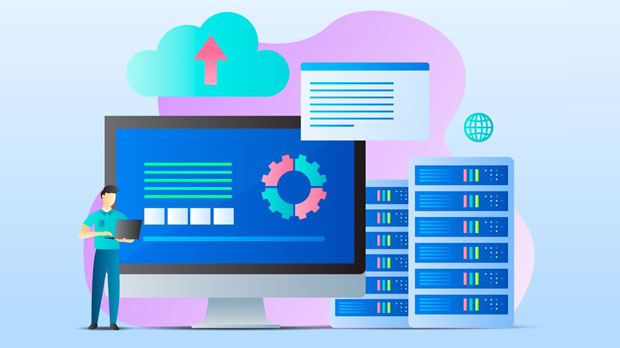When it comes to ensuring secure and stable HTTPS cross-border access, both PYPROXY and VPNBook Proxy are widely recognized tools. While both provide a reliable service, they each come with different features, benefits, and limitations. In this article, we will delve into the stability of these two proxy solutions, compare their performance across various factors, and analyze their respective strengths and weaknesses. By understanding the differences, users can make an informed decision based on their specific needs, whether they require high-speed browsing, privacy protection, or minimal downtime during cross-border browsing. Introduction to HTTPS Cross-Border AccessIn the modern world of internet browsing, HTTPS (HyperText Transfer Protocol Secure) has become a standard protocol for encrypted communication. This encryption ensures secure data transmission between clients and servers, making it essential for online privacy and security. When browsing across borders, especially in regions with heavy censorship or geo-restrictions, users rely on proxy servers to circumvent these limitations. Both PyProxy and VPNBook Proxy are designed to provide users with a safe browsing experience by acting as intermediaries between users and web servers. However, how do they compare in terms of stability for HTTPS cross-border access? This article seeks to answer that question by analyzing various key aspects.PyProxy Overview and Its Stability FeaturesPyProxy is a popular proxy server tool designed for users seeking stable access to restricted or geo-blocked websites. It supports HTTPS connections, ensuring that data transmission remains encrypted and secure. One of the key features of PyProxy is its ability to provide fast and consistent browsing, even in areas with unstable internet connections. This is particularly important when accessing websites located in foreign countries, where network conditions might vary. PyProxy achieves this stability through optimized routing protocols and dedicated server infrastructures that ensure a reliable connection.Another important factor contributing to PyProxy’s stability is its minimal downtime. The service is backed by an advanced monitoring system that detects issues in real time and automatically reroutes traffic to alternative servers. This reduces the chances of long interruptions, making it a preferred choice for users who require continuous access to HTTPS websites.VPNBook Proxy Overview and Its Stability FeaturesVPNBook Proxy, on the other hand, offers free and paid proxy services for users who wish to access websites securely over HTTPS. It is designed to bypass geo-restrictions, censorship, and other browsing limitations typically imposed by firewalls. While VPNBook Proxy is well-regarded for its free service, its stability in HTTPS cross-border access can sometimes be inconsistent.VPNBook Proxy operates on multiple proxy servers globally, but unlike PyProxy, its free services may experience more downtime or slower speeds during peak usage hours. The service offers various servers that can be used for HTTPS connections, but the performance of these servers may fluctuate based on server load and the geographical distance between the user and the server. While it’s a cost-effective option, users might experience occasional instability, which can be detrimental to those relying on uninterrupted browsing.Key Factors Influencing Stability: Performance, Speed, and LatencyWhen comparing the stability of PyProxy and VPNBook Proxy, three key factors must be considered: performance, speed, and latency. Performance refers to how well the proxy server handles HTTPS requests, while speed indicates the rate at which data is transmitted between the user and the target server. Latency, on the other hand, measures the delay in communication between the user’s device and the proxy server.1. Performance: PyProxy generally outperforms VPNBook Proxy in terms of performance, as it utilizes dedicated servers and optimized routing protocols to ensure smooth connections. This allows users to enjoy more consistent browsing experiences. In contrast, VPNBook Proxy, especially the free service, may experience slower performance during high-demand periods, impacting browsing speed and efficiency.2. Speed: PyProxy also tends to offer faster connection speeds for HTTPS cross-border access. Its infrastructure is designed to minimize bottlenecks and reduce lag, which is critical for users who rely on high-speed internet for their activities. VPNBook Proxy, though functional, may not offer the same speed, particularly during peak traffic hours, due to its shared server architecture.3. Latency: Latency is a crucial consideration when accessing websites across borders. PyProxy’s optimized infrastructure helps reduce latency, ensuring faster response times. In contrast, VPNBook Proxy may face higher latency due to the geographic distance between the user and the server, particularly when using free servers that are located far from the user’s region.Security and Privacy ConsiderationsSecurity is a critical aspect of HTTPS browsing, especially when accessing cross-border sites. Both PyProxy and VPNBook Proxy provide HTTPS support, ensuring data encryption between the user and the proxy server. However, there are notable differences in their security protocols.PyProxy, being a paid service, offers more robust security features. It implements strict security measures to protect user data, including encryption algorithms that ensure user information remains safe from prying eyes. Additionally, PyProxy does not log user activity, providing enhanced privacy for those concerned about surveillance or data tracking.On the other hand, VPNBook Proxy, especially its free version, may not provide the same level of security. Although it encrypts traffic, some security experts have raised concerns about the potential for data logging or insufficient privacy protection. Users seeking the highest levels of security might find PyProxy to be the more reliable choice.Cost Efficiency: Free vs. Paid Proxy ServicesOne of the main considerations for users when choosing between PyProxy and VPNBook Proxy is cost. VPNBook Proxy is free, making it an attractive option for budget-conscious users. However, this comes at the cost of potential instability, slower speeds, and fewer security guarantees. PyProxy, being a paid service, offers a more stable, secure, and reliable experience, but at a price.For users who need consistent and high-quality HTTPS cross-border access without interruptions, the investment in PyProxy may be well worth it. However, for those who are willing to compromise on speed and reliability for cost savings, VPNBook Proxy offers a free alternative.Conclusion: Which Proxy Service is Better for HTTPS Cross-Border Access?When comparing the stability of PyProxy and VPNBook Proxy for HTTPS cross-border access, PyProxy generally offers superior performance, speed, and stability. Its dedicated infrastructure, optimized routing, and strong security protocols make it the better choice for users who require consistent and uninterrupted access to foreign websites.On the other hand, VPNBook Proxy, while functional and cost-effective, may not offer the same level of reliability, especially for users who require high-speed browsing and minimal latency. Its free service can be prone to downtime and slower speeds, making it less ideal for users who prioritize performance over cost.Ultimately, the choice between PyProxy and VPNBook Proxy depends on the specific needs of the user. If stability, speed, and security are paramount, PyProxy is the recommended choice. For those on a budget who can tolerate occasional disruptions, VPNBook Proxy may be a suitable option.
Sep 02, 2025



































































